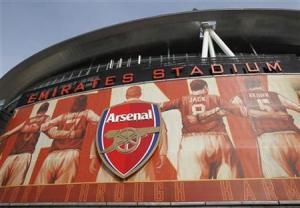The media has been abuzz this week with discussion over the price of tickets for the away section at the Arsenal vs Manchester City match in London this weekend. Arsenal, decided to raise the price of the tickets in the away section to £62 (about $99 U.S.), which has made many supporters of Man City and the media very angry. Manchester City actually returned 900 tickets to Arsenal of the several thousand that they were given for their fan section, as supporters of Man City have refused to pay so much to go travel to London to watch the game.
Which might have been a smart thing, as I believe it is now 35 years since Man City has beaten Arsenal at Highbury or the Emirates. (Yes, I’m an Arsenal supporter, and I keep track of these things…)
Notably, Arsenal and other teams in England have begun using multi-tiered pricing where different games are priced differently based on the opponents and other factors. This practice means big games like Man City vs Arsenal will garner a high price, while QPR vs Norwich will be rather cheap. It is also a practice which is not new to fans in North America, where many of the sport leagues use variable ticket pricing to try and capture greater consumer surplus. Economists have begun to examine this practice of price dispersion, and research studies looking at similar practices in Theaters have found that it has boosted revenue for organizations. Which means it seems only natural for sport organizations to copy this behavior.
But Arsenal fans are also unhappy, and have complained to the club this week because of the high prices. They noted that in other countries across Europe, tickets often run between ten to twenty Euros. I think with the growing nature of the business that is the Premier League, fans will only be disappointed in the future as ticket prices continue to soar, especially for matches with top tier opponents.



 Posted by nickwatanabe
Posted by nickwatanabe 